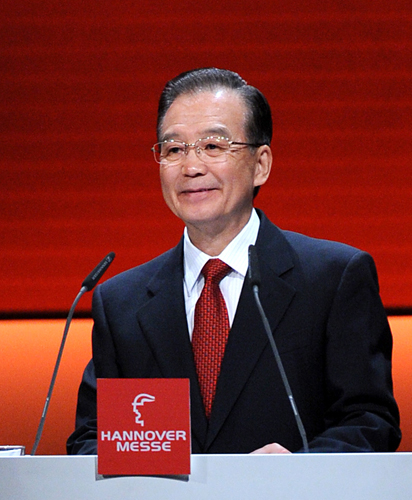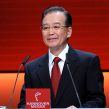
The Limits of Reform: Assaulting the Castle of the Status Quo
Publication: China Brief Volume: 12 Issue: 9
By:

A series of editorials this week in leading official newspapers suggested pressure for reform within the Chinese Communist Party (CCP) continues to build. One of the unsigned commentaries—like Premier Wen Jiabao’s speech about political reform as Bo Xilai was ousted from Chongqing—stated “reform has reached a troubled period akin to assaulting fortified positions” (Xinhua, April 23; Chinareform.org.cn, March 22). Outside observers picked up these calls for reform as sign of a coordinated propaganda campaign for cleaning out the CCP corrupted by ambitious politicians and entrenched interests (South China Morning Post, April 24; AGIChina.it, April 24). Even as the tocsin of reform sounded, however, the official press also established the acceptable boundaries of reform, limiting it to improving CCP performance and pushing forward on the 12th Five Year Plan.
The propaganda language of “assaulting fortified positions” (gongjian) used in Xinhua seemed to highlight the potential importance of these calls for reform (Xinhua, April 23). Indeed, in reference to the policy of reform and opening (gaige kaifang), the gongjian formulation does not appear to have been used much in official editorials for several years. The urgency surrounding the 12th Five Year Plan and the need to make changes in economic governance last year probably created the largest cluster of such calls (Procurator’s Daily, January 18, 2011). The urgency prompted one editorial writer to ask rhetorically “what does assaulting fortifications require?” and elaborate on the need for the courage to act on reform (People’s Daily, January 26, 2011).
Premier Wen, however, has been using precisely this formulation for at least three years in his well-publicized if unheeded calls for reform. Last month at the China Development Research Foundation event hosting IMF chief Christine Lagarde, Vice Premier Li Keqiang said “In front of our eyes, Chinese reform has entered a period akin to assaulting fortified positions” (Dongfang Zaobao, March 19). Finally, a widely-posted editorial—reprinted as “Reform has reached a troubled period akin to assaulting fortified positions; promote the institutionalization of democratic supervision” (gaige jinru shenshuiqu he gongjianqi ying cujin minzhu jiandu zhiduhua)—drew attention to the first use of “government reform” in the National People’s Congress’ Government Work Report as part of the call for performance (People’s Daily, April 9; Xinhua, April 9; Science & Technology Daily, April 9). If such strong language is not entirely out of character, then the real puzzle of such strong language appearing in Xinhua is why the reform advocating editorials of the People’s Daily and the China Youth Daily did not carry this language—or why Wen’s latest reform speech given last week also omitted the phrase (People’s Daily, April 23). The answer, at least in part, is because the limits placed on reform make any progress largely irrelevant.
In parallel with these calls for reform, other commentaries in the official press systematically limited the scope of what Beijing considered acceptable as political and economic reform. An editor’s note on Monday stated the positive emphasis on the Chinese people in guiding reforms “does not mean weakening the CCP’s leadership,” reflecting the center’s assertion that China “will stick to its fundamental political system” (People’s Daily, April 23; Global Times, April 11). The answer is to make the government and its CCP cadre work better and more effectively while rooting out corruption, which Premier Wen recently called “the most crucial threat to the ruling party” (People’s Daily, April 24; April 23; China Daily, March 27).
One of the best examples of these limits is the contrast between the embattled security chief Zhou Yongkang’s remarks at the Central Political-Legal Commission’s first training session of the year and how the CCP claims the Bo family’s investigation will be handled. After Bo’s ouster from the Politburo last month, Chinese press filled the pages with statements about how the investigation into him and his wife’s alleged murder of British businessman Neil Heywood would be handled according to the law (People’s Daily, April 13; Xinhua, April 10; China Daily, March 27). In contrast, Zhou stated the role of political-legal work was to “consolidate the party’s ruling status” and “politics is always the first requirement” for political-legal work (People’s Daily, April 24).
The focus on improving cadre performance and anti-corruption highlights how the CCP tries to focus attention on non-procedural forms of political legitimacy, i.e. legitimacy not based on democratic elections. Observers should not be surprised that these calls for reform in the last two months heralded a parallel attack on Western democracy and defense of socialism with Chinese characteristics. The same day as the reform editorials, Xinhua World Studies Institute researcher Chan Dexiong penned an article questioning how a system that allows a few people to get rich at the expense of the people could be democratic or legitimate (People’s Daily, April 23). This analysis mirrored an earlier article arguing the Chinese people chose Marxism because it offered a path to national liberation and democratic rights while helping “build a harmonious and equitable society” (Red Flag, March 26). Accordingly, foreign hostile forces threatened to divide and manipulate China if Beijing succumbed to Western-style democracy, which one former ambassador suggested might even lead China to resemble the former Yugoslavia (People’s Daily, April 24; PLA Daily, April 1; Red Flag, March 26).
The latest calls for reform augur little, if any, change to the status quo, regardless how strong the language or how dire the situation might seem for a scandal-ridden CCP on the cusp of a major leadership transition. The internal tensions between the CCP’s primacy and the need for more objective “scientific development” are not new, but reform probably will require tradeoffs involving the CCP’s political power. The CCP’s rule however has not been opened for negotiation, keeping entrenched interests that the party claims to oppose in place. On the positive side, the call for adherence and continuation to the policy of reform and opening is a fairly clear repudiation of the quasi-Maoist policies advocated by Bo.





